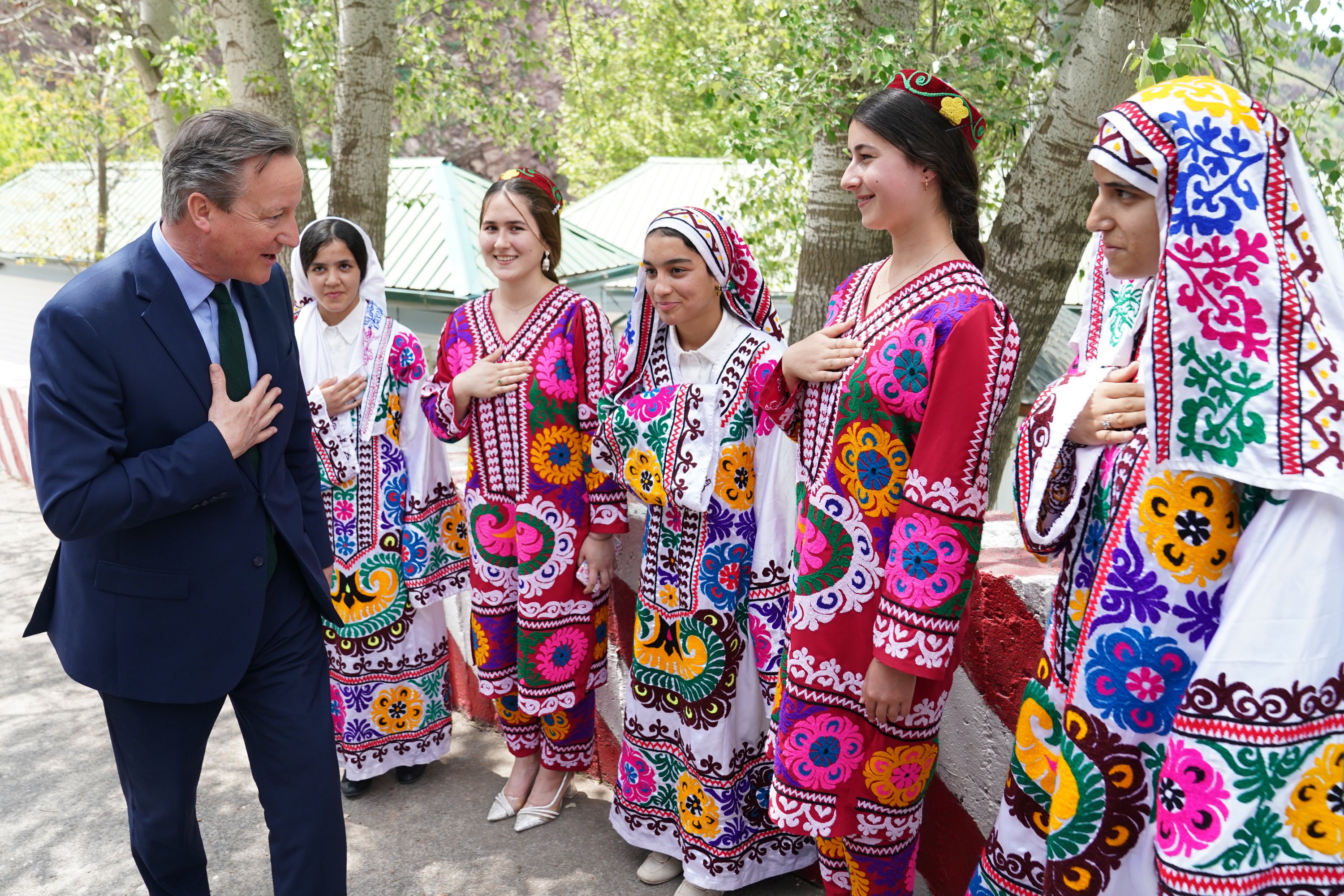David Cameron seeks ‘new era’ in UK-Central Asia relations on visit to region
The Foreign Secretary is travelling across Tajikistan, Kyrgyzstan, Uzbekistan, Turkmenistan, Kazakhstan and Mongolia

Lord David Cameron has heralded a “new era” in relations between Britain and Central Asia on a visit to the region amid concerns about trade sanctions on Russia being side-stepped in neighbouring countries.
The Foreign Secretary is travelling across Tajikistan, Kyrgyzstan, Uzbekistan, Turkmenistan, Kazakhstan and Mongolia in a diplomatic bid to boost trade, security and environmental ties with the UK.
He will warn Central Asia is “at the epicentre of some of the biggest challenges we face” as he announces a series of measures aimed at supporting its “hard-won sovereignty”.
In a meeting with Tajik President Emomali Rahmon at the Palace of the Nation in Dushanbe on Monday, Lord Cameron said there was “more we can do” to co-operate on key areas like business, climate change and counter-terrorism.
“I’m delighted to be the first foreign secretary to visit your country. I’m only sorry that it’s taken so long for one to come,” he told President Rahmon.
“We want to signal a new era in relations between Britain and all of the Central Asia republics, starting here in Tajikistan.
“Overall we’re here to say ‘let’s make the partnership bigger, let’s do more things together’.”
The trip, which is the first by a British foreign secretary to Tajikistan, Kyrgyzstan and Turkmenistan, comes as reports suggest luxury UK cars are still making their way to Moscow through former Soviet states.
Exports of high-end vehicles to Russia were banned by Britain after President Vladimir Putin waged war in Ukraine two years ago, but there are concerns over a sudden spike in sales to nearby countries.
In talks with leaders from across the region, Lord Cameron will seek to “advance discussions on sanctions circumvention, human rights and reform,” the Foreign Office said.
He will double the amount of funding for Chevening scholarships, which support people from overseas studying in British universities, and announce £50 million over the next three years in development spending across the region.
A new scheme designed to promote the English language will also be announced, including online teaching resources with tailored local content available to teachers throughout Central Asia, the Foreign Office said.
The Foreign Secretary will also visit a number of key sites including the hydro-electric project at the Nurek Dam in Tajikistan, which is heavily reliant on Russia for fuel, and a canal irrigation site in Kyrgyzstan.
Ahead of the trip, Lord Cameron said: “We live in a contested, competitive world. If you want to protect and promote British interests you need to get out there and compete.
“Central Asia is at the epicentre of some of the biggest challenges we face and it’s vital for the UK and the region that we drive forward its future prosperity.”
Subscribe to Independent Premium to bookmark this article
Want to bookmark your favourite articles and stories to read or reference later? Start your Independent Premium subscription today.
